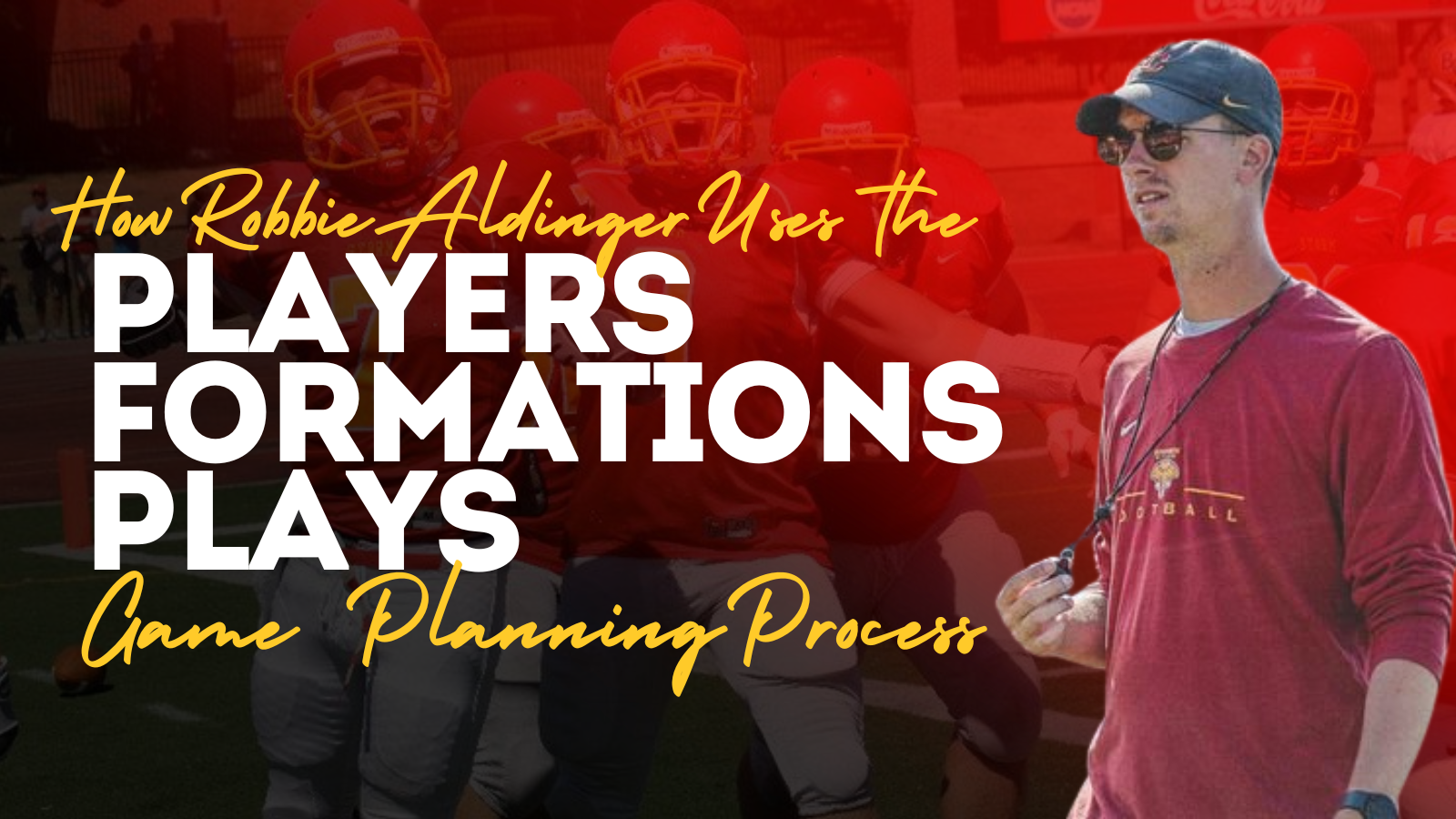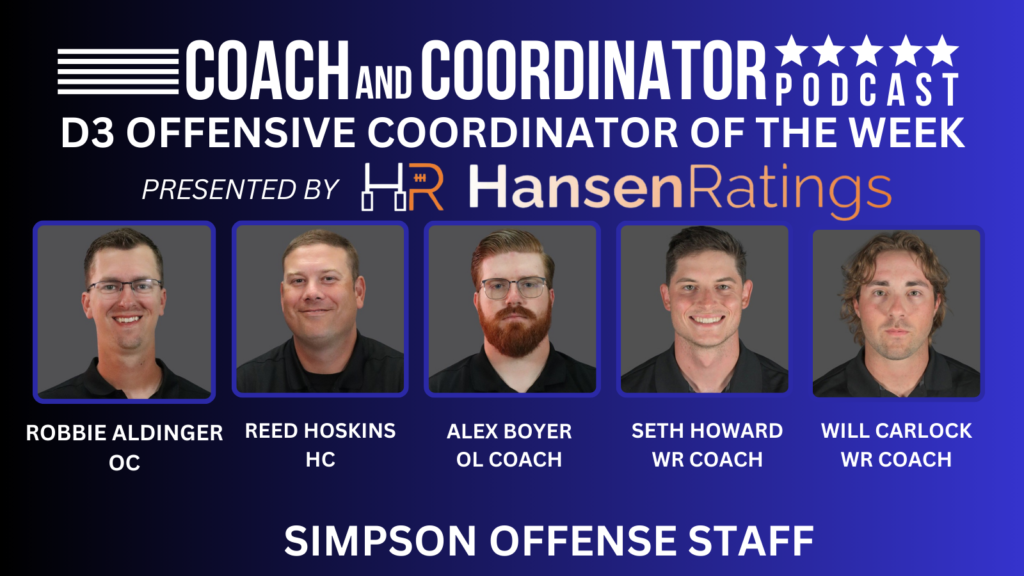
Simpson College Robbie Aldinger learned from one of the best ever while he was a student assistant and then intern at the University of Mount Union. Retired Hall of Fame Coach Larry Kehres built his offenses on the principle of “Players-Formations-Plays.” It’s been a philsophy that the dozens of coaches at the high school, college, and even the NFL have learned as part of the Kehres coaching tree and applied to their own teams. For Aldinger, it’s become what drives his game planning process.
The “Players-Formations-Plays” (PFP) philosophy framework helps Aldinger structure decisions from personnel to play design. Aldinger’s process starts with understanding his team’s personnel and opponent’s tendencies. As with all Kehres discplies, it all begins by putting players in the best possible position to succeed.
Players -The Foundation
Aldinger and his coaching staff start by identifying the strengths of their team’s personnel. The staff assesses the skills of their key players, analyzing which individuals or personnel groups will be most effective against their upcoming opponent. They focus on each player’s abilities and how to maximize them in the game plan. Aldinger emphasizes that understanding personnel forms the foundation, as this step determines the following formations and plays. He tailors his offensive strategy each week by evaluating who can best exploit specific matchups.
Formations – The Setup
Once the key players are identified, Aldinger shifts his focus to formations. This stage involves analyzing how the opposing defense reacts to different formations. The coaching staff breaks down film, studying coverages, defensive fronts, and blitz tendencies from various formations. They also evaluate how defensive personnel align based on different offensive looks. Aldinger highlights that being formationally diverse—using shifts, motions, and unbalanced formations—helps test the opponent’s scheme and forces them to reveal their adjustments.
A key challenge Aldinger faces is predicting how defenses will react to formations they haven’t seen on tape. In these cases, the coaching staff relies on their understanding of defensive structures to make educated guesses and plan accordingly. Formations are used strategically to gain leverage, attack defensive weaknesses, and put the team in advantageous positions.
Plays – Execution and Adaptation
The final stage is deciding which plays to run from the selected formations. Aldinger emphasizes the importance of complementary plays built on core concepts. For instance, if a specific play has been run multiple times, the staff will design complementary plays like play-action passes or double moves to keep the defense off balance. This element of unpredictability is crucial, especially in a conference filled with disciplined and skilled defenses.
Aldinger also incorporates in-game adjustments by utilizing modern technology, which allows him to review footage during games to refine strategies. This ability to analyze the opponent’s real-time reactions helps shape decisions for subsequent drives. By continually refining his offense’s identity, Aldinger creates a dynamic and adaptable attack.
Robbie Aldinger’s PFP philosophy is a methodical process that builds offensive success from understanding players, utilizing strategic formations, and executing well-designed plays. It’s a collaborative effort that involves constant evaluation, adaptation, and innovation, all aimed at maximizing the offense’s potential week after week.
D3 Offensive Coordinator of the Week

Coach Aldinger was named the 2024 Week 4 D3 Coach and Coordinator of the Week presented by Hansen Ratings.
Reed Hoskins is the Head Coach at Simpson College and Coach Aldinger is assisted by Alex Boyer, Seth Howard, and Will Carlock.
Notable Stats
Robbie Aldinger | Simpson | 66-14 vs. Loras
- Simpson hadn’t beaten Loras since 2018
- Led 45-0 at halftime
- Extremely efficient & explosive passing attack
- 78% completion percentage
- 8.4 yards per pass
- Led by Noah Cracraft w/ 13 rec. for 178 yards
- Capitalized on short fields and had consecutive TD drives of 69, 60, 72, & 60 yards


